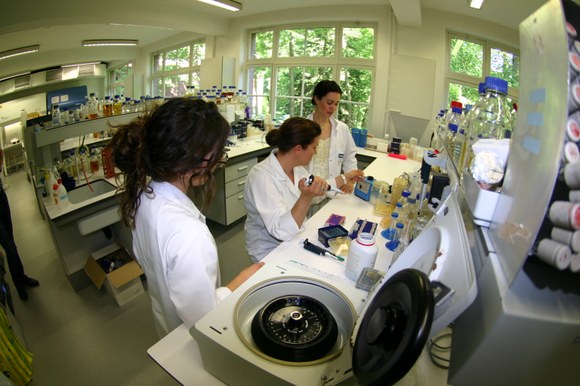
KU Leuven has received allegations against one of its researchers regarding possible infringements of scientific integrity. The Commission on Scientific Integrity (CWI) at KU Leuven is looking into the matter.
According to a report in De Tijd (paywall), university rector Luc Sels is to call together the Committee on Scientific Integrity following a number of complaints against Prof. Verfaillie.
Here is the KU Leuven communication
KU Leuven takes the allegations very seriously, as it always does when scientific integrity is at stake. The follow-up is in the hands of the Commission on Scientific Integrity (CWI) at KU Leuven, which is now examining the allegations and will issue a recommendation on all papers that have been flagged as potentially problematic.
“Scientific integrity is our line of life and is essential to upholding the image of science as a reliable source of information,” says Rector Luc Sels. “Integrity is a core value of our University and the policy on this matter is high on the agenda. When there is even the slightest doubt about someone’s scientific integrity, we, as a University, have to take our responsibility. That means our first step is always to examine each report with great care. Such an analysis demands time and patience. As such, we cannot make further statements at this stage of the investigation. However, should it become clear that there is, indeed, an issue, we intend to communicate clearly and openly about it, all the while respecting the researcher’s privacy and rights of defence.”
The complaint against Verfaillie concerns some of the images used in the papers to illustrate her research. It is alleged that some of the images do not meet the high scientific standard for research papers, having been copied and pasted from elsewhere or manipulated with Photoshop. The papers in question range in date from 1999 to 2018.
The accusation of falsification comes from Elisabeth Bik, a Dutch molecular biologist who has otherwise made a name for uncovering dubious images used in scientific papers. She published her doubts on the Pubpeer blog, and also runs the blog Science Integrity Digest, where the claims against Verfaillie currently dominate the front page.
Stem cells are undifferentiated cells found in the embryo as well as in certain tissues in the adult body, including blood, fat and bone marrow. Under lab conditions, they can be made to transform into other cells, which can then be used in the treatment of a variety of conditions, such as cancer, diabetes and heart disease. Bone marrow transplants for leukaemia is probably one of the best-known examples of a form of stem cell therapy.
The Verfaillie papers in question date back to a time when she was director of the Stem Cell Institute at the University of Minnesota’s medical school, when accusations were made against members of her research team of falsifying data in a ground-breaking paper which aimed to show for the first time that stem cells could be extracted from adult body tissue. Verfaillie left Minnesota in 2006 to take over at Leuven and continue her research, following similar accusations against her and her team of falsified imagery in published papers. That led to a number of papers being amended or withdrawn from publication.

Leave a Reply